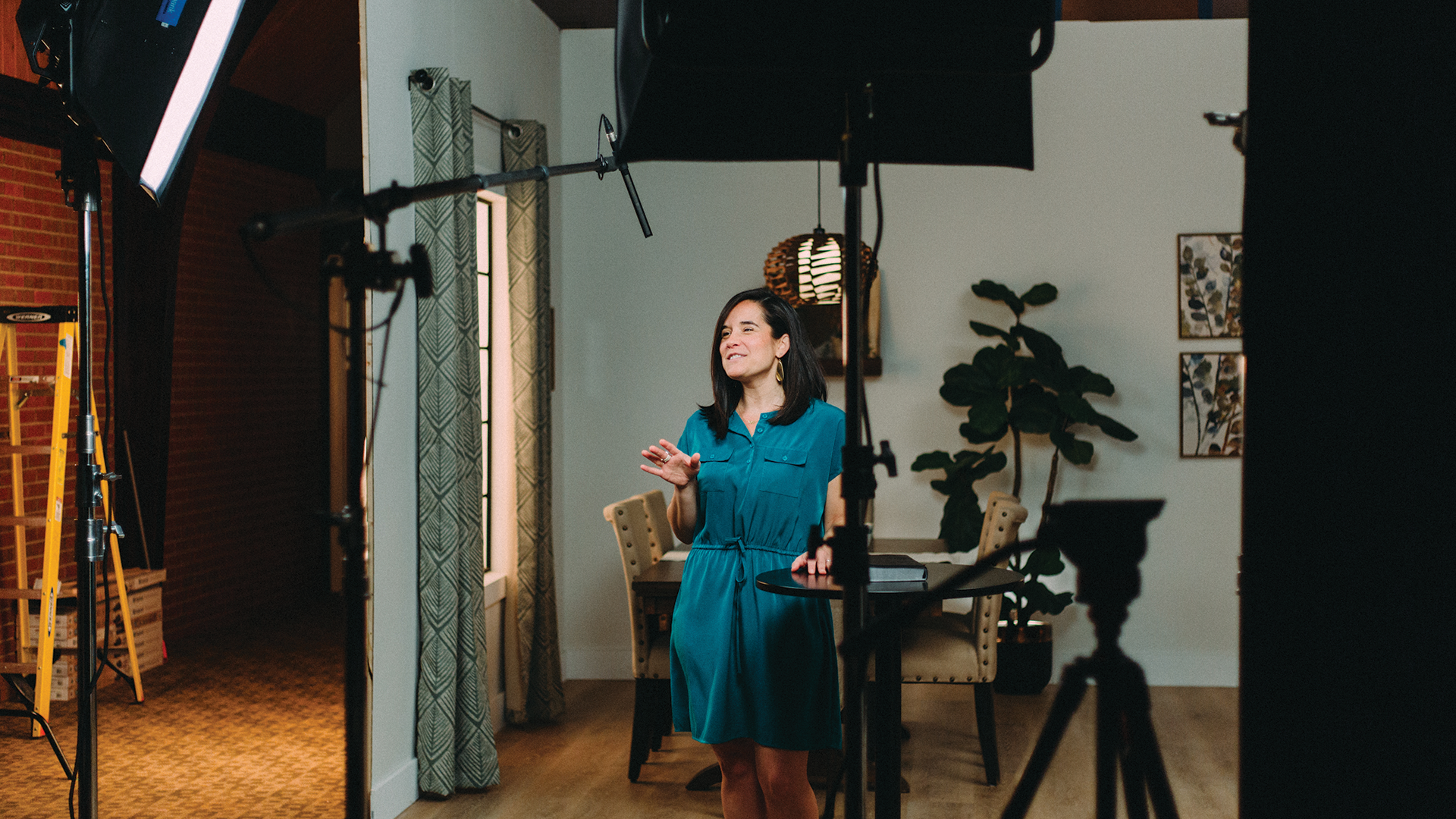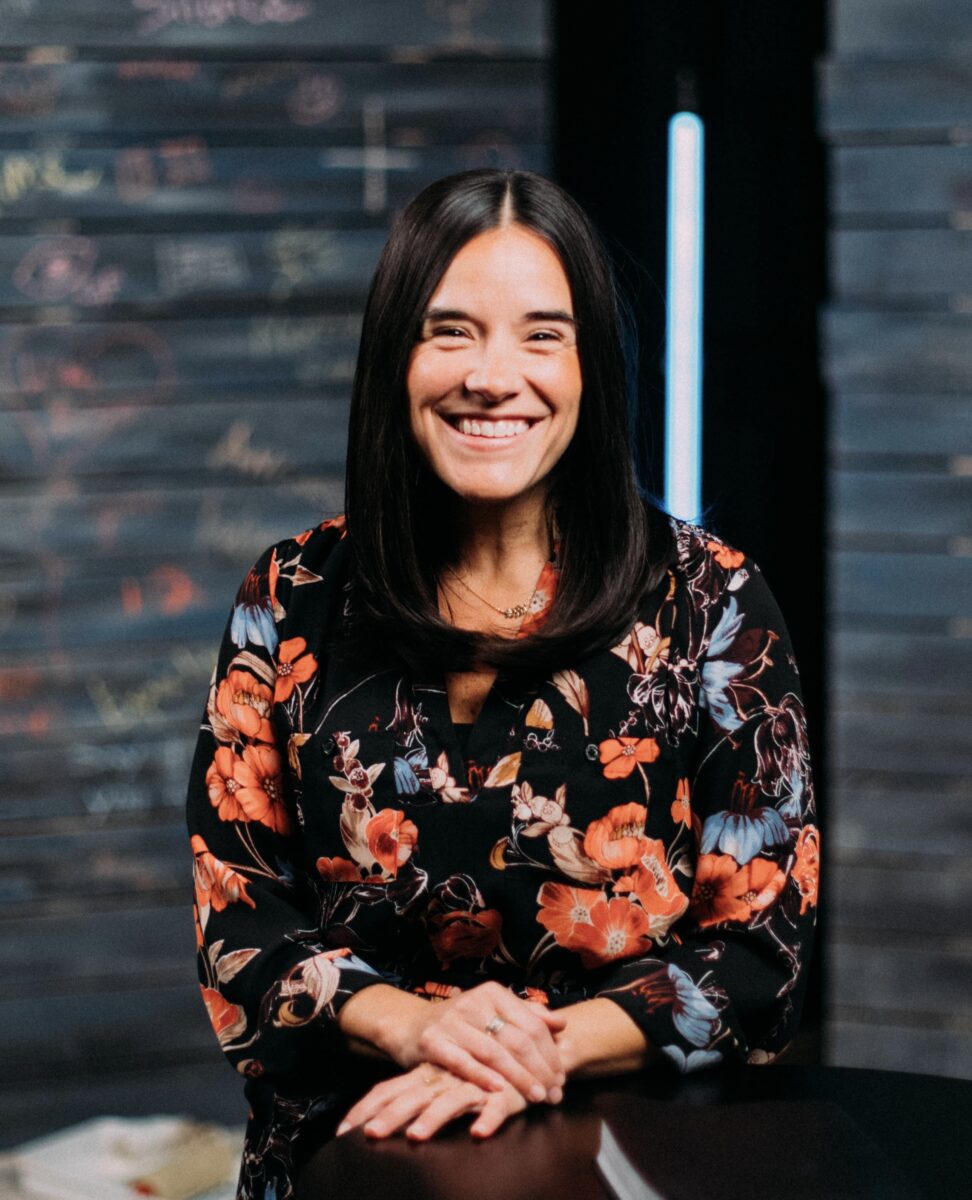
The World Needs More Women-Led Movements
As you begin to hone and become more confident in being unstoppable in your life, you might feel a calling to start a movement. You might not know what that movement fully looks like, but you know that God has placed something on your heart that involves being a voice or shepherd for those around you. So where do you even begin? This month, Keri Ladouceur, founder of New Ground Network, shares her thoughts on movements, why women need to lead more movements, and how to focus on collaboration and not competition when entering the world of movements.
You can listen to this entire conversation with Keri on our podcast, Work, Love, Pray! Listen below or click here to find your preferred listening platform.
When you think about a movement, what comes to mind for you?
I immediately think of people with a shared imagination for what the world could be like. Movements can happen in all sorts of spheres, whether that’s connecting with folks in your community regarding educational needs, or a movement in a church space, or a movement for health. There are all sorts of ways that a movement can come to fruition, but at the core, a movement is people with an imagination for things to be different or better than they are presently. Movements also have some sort of invitation to invite us on that journey towards improvement or flourishing of all people.
Do men and women launch or lead movements differently? Who do you think does it better?
I have been in full-time vocational ministry for over 17 years. I was in the marketplace as a leader before that in a predominantly male-led industry. I would say men and women launch and lead movements really differently. Who leads a movement better is a tricky question. I think in this present moment in the world, we’re seeing cracks within the old paradigm of leadership, which is predominantly male-led, which does center around patriarchy and supremacy and things like that. I think the cracks in the old model are revealing to us that we need some new and better ways. And I do think that that uniquely positions women and some of the ways that we lead or launch movements. Leveraging those women maybe help usher us into a new imagination for what leadership and movements can look like.
Do you think the world needs more women led movements?
I do, certainly. Many organizations, churches, nonprofits, even whole denominations would say they want to see more women in leadership or they want to learn how to develop more women in leadership. What’s interesting is, as I have been in this work the last few years, I feel really invited to shift from how often I approach those conversations with organizations wanting more women in leadership.
What I try to help these organizations understand are the obstacles for women in leadership. We have these male-centered definitions of what we imagine leadership looks like. And beyond talking about the obstacles, I really want to start talking about the opportunities and what is possible when we get out of the way and empower and activate the women around us.
Do you think the professional world is maybe a little bit more open to women leaders than the church world?
That’s such a good question. I have real passion for seeing the church become the place that models what relationships between men and women can look like. When we get that sort of mutuality, that’s us actually being a beloved community and ushering in God’s Kingdom on Earth as it is in Heaven. God’s intentions were mutuality and shalom and flourishing between men and women. This as an area that is really broken in the world and in culture, so I see so much opportunity for the church to model that.
My perception is that professional workplaces are further along than the church world when it comes to equipping and engaging women. Yet, we still have so much room to grow in this area. Unfortunately there’ve been consequences on women in the workforce post-pandemic. Both the professional and church worlds have room to grow, and I dream of the church leading out when it comes to how we equip men and women to serve and lead side by side. We could then unleash women-led movements, get underneath them and empower the ways women were created to lead, which I think is quite different than how men lead.

Keri Ladouceur is a pastor, teacher, incessantly curious question asker, and bridge building peacemaker. She believes the fullness of the gospel is liberative good news for all of creation and longs to cultivate new faith spaces of mutuality and flourishing for all people.
She is founder of New Ground Network, where she co-conspires with pastors, denominations, and organizational leaders to clarify and align around their purpose. One of her favorites roles is organizational coach where she is part dreamer, instigator, activator and team counselor. She has an MA in New Testament from Northern Seminary, and her imagination for the Beloved Community has been primarily shaped by her native heritage and liberation thinkers and theologians.
She dreams of the Church being a life-giving community of flourishing that activates the people of God to join Christ in the redemption and restoration of all things.